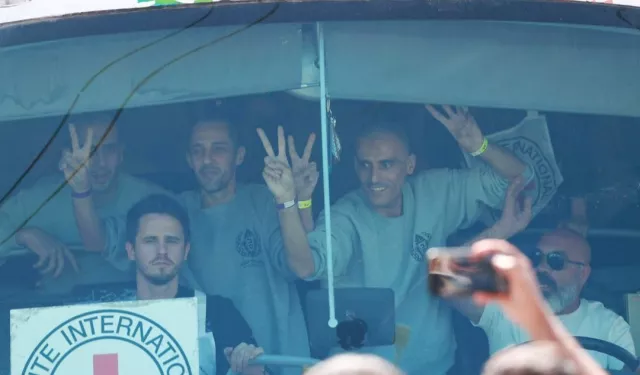Hamas accused Israel on Sunday of concealing the identities and whereabouts of Palestinians detained during its ongoing assault on Gaza, after receiving a partial list of 1,468 names.
In a statement issued via Telegram, Hamas said it had reviewed the list with relevant authorities and confirmed all but 11 names, which are still under verification. The list was transmitted by the Israeli military through intermediaries as part of the ceasefire and prisoner exchange framework.
The group said Israel continues to forcibly disappear an unknown number of detainees inside its prisons, withholding their identities in violation of international law.
“The list is the result of over a month of mediated communication between the Palestinian resistance and the occupying state,” the statement read, adding that Israeli obstruction and manipulation delayed its release. Hamas said it had been forced to make the list public due to Israel’s ongoing bad faith.
The movement warned that Israel bears full responsibility for the safety and wellbeing of all prisoners, and called on international mediators to pressure Israel to reveal the full list of detainees and ensure their legal and humanitarian rights are upheld.
Meanwhile, Israeli National Security Minister Itamar Ben Gvir reaffirmed his own position, denying Palestinian nationhood and calling the people of Palestine an “invention.”
He claimed that granting Palestinians statehood would reward what he called “terrorism,” and said the “solution” for Gaza was “voluntary migration”—a thinly veiled call for ethnic cleansing. Finance Minister Bezalel Smotrich also urged Netanyahu to publicly declare that “no Palestinian state will ever arise.”
In response, Israeli Prime Minister Benjamin Netanyahu “Gaza will be demilitarized and Hamas will be disarmed, the easy way or the hard way. I do not need affirmations, tweets, or lectures from anyone,” said Sunday at a cabinet meeting, invoking support from US President Donald Trump. “Our opposition to a Palestinian state in any territory has not changed.”
Meanwhile, Israeli warplanes and artillery continued targeting southern Gaza, flattening residential neighborhoods in Khan Younis, within the so-called newly demarcated “yellow line.” Human rights groups and residents described the destruction as deliberate collective punishment.
The World Health Organization’s Director-General Tedros Adhanom Ghebreyesus said more than 16,500 patients—including 4,000 children—urgently need evacuation from Gaza.
He called for opening all evacuation routes, especially those leading to the West Bank and East Jerusalem, to ensure timely access to lifesaving care.
Despite the escalating violence, the United States and several regional allies—including Egypt, Qatar, Saudi Arabia, the UAE, Turkey, Jordan, Pakistan, and Indonesia—have thrown their weight behind a US-sponsored UN Security Council resolution. They claim the plan offers a path toward peace and stability.
Hamas, however, has appealed to Russia and China to veto the proposal, which it views as legitimizing permanent Israeli control and militarization of Gaza. The draft US resolution calls for the creation of a “Board of Peace” to govern Gaza until 2027, backed by a multinational enforcement force working with Israel, Egypt, and Palestinian police trained under US supervision.
Hamas warned that vague security mandates and Israeli military freedom of operation could provoke direct clashes with resistance fighters. It denounced the proposal’s language as deliberately opaque and dangerous.
Russia countered with an alternative resolution that calls for an immediate ceasefire and asks the UN Secretary-General to present stabilization options. Unlike the US draft, it omits any reference to the controversial transitional council.
The American draft aligns closely with the Israeli government’s long-standing refusal to recognize Palestinian statehood based on 1967 borders, as outlined in UN Resolution 242.
While the Trump administration has not formally rejected the two-state solution, it has consistently undermined it, advocating expanded Israeli control and rebranding Gaza as a potential “Middle Eastern Riviera.”
As the Security Council prepares to vote, the outcome could reshape the political landscape of Gaza and determine whether the international community legitimizes Israeli entrenchment—or demands accountability and a just resolution to the Palestinian struggle.
